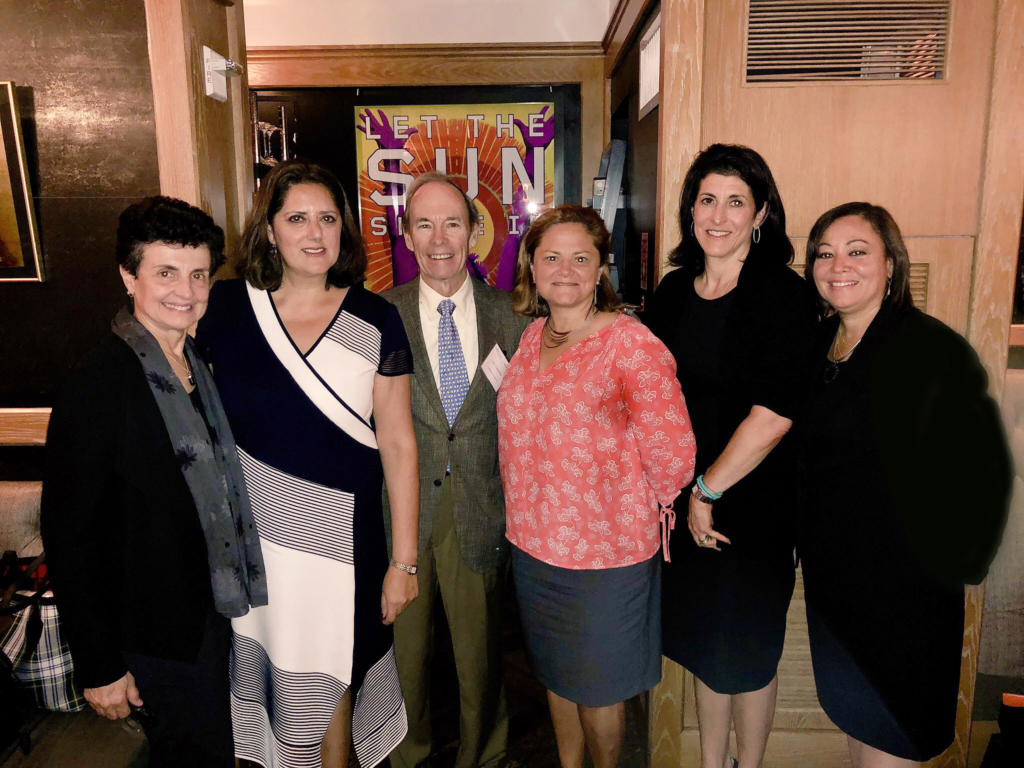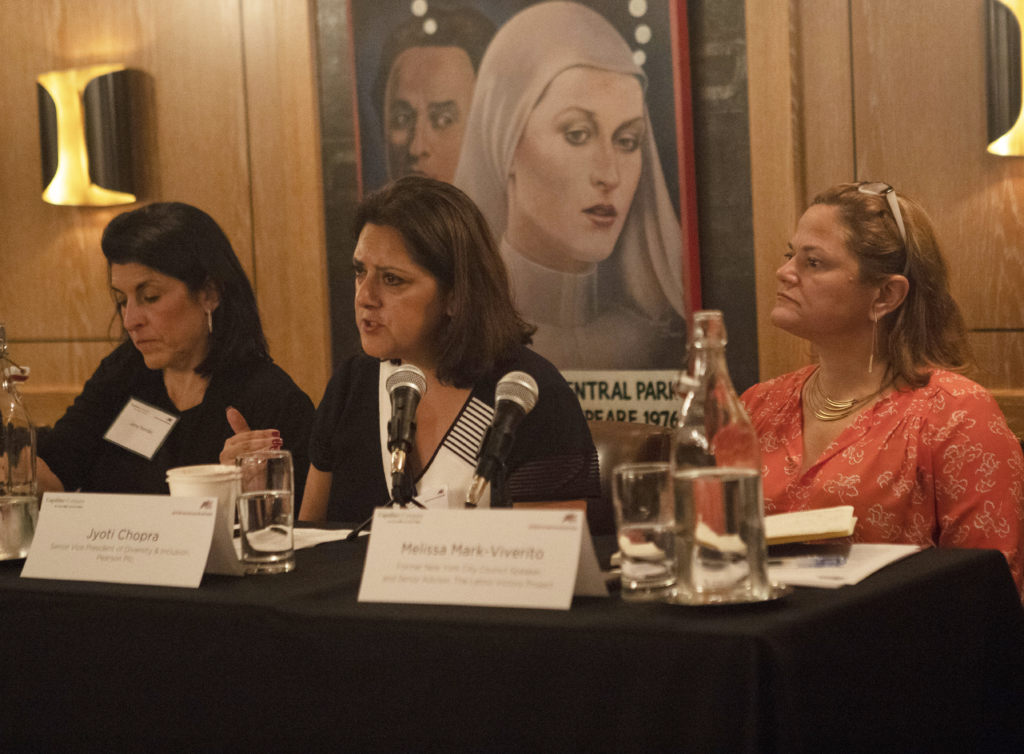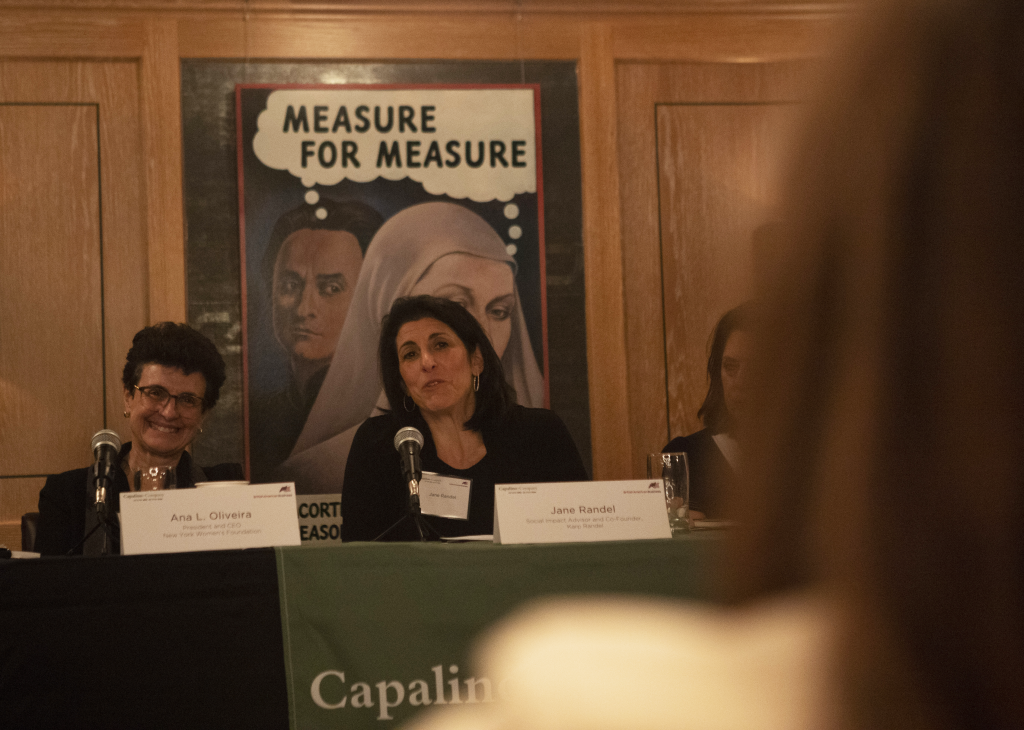
5 Takeaways from Beyond #MeToo: Moving from Awareness to Action
Capalino and BritishAmerican Business Host Discussion on How Business and Nonprofit Leaders Can Affect Permanent Change
Written by Lindsay Safran, Vice President, Capalino
The #MeToo movement has elevated our awareness of sexual misconduct in every industry, becoming one of the most important social movements of our time. It has given credibility to the voices of survivors and increased consequences for offenders. Businesses and nonprofits are examining their own internal and external practices and policies, and the culture they create for their employees. At the same time, our political system is at a critical crossroads. Women are running for office in record numbers, presenting us with the opportunity – and the obligation – to create equity, representation, and leadership on legislation of crucial importance.
On September 26, Capalino hosted a panel in partnership with BritishAmerican Business entitled “Beyond #MeToo: Moving from Awareness to Action” that explored what comes next for the #MeToo movement and how business and nonprofit leaders can affect permanent change.
Capalino Executive Vice President Jeanne Mullgrav moderated the discussion featuring Jyoti Chopra, Senior Vice President of Diversity & Inclusion, Pearson; Former NYC Council Speaker Melissa Mark-Viverito, Senior Advisor, The Latino Victory Project; Ana L. Oliveira, President and CEO, New York Women’s Foundation; and Jane Randel, Social Impact Advisor and Co-Founder, Karp Randel. Jim Capalino, CEO of Capalino, provided opening remarks and Tamra Eker, Executive Director of BritishAmerican Business, welcomed the audience.
Below are the top 5 takeaways from “Beyond #MeToo” that business and nonprofit leaders need to know:
1. Change comes from the top
Business and nonprofit leaders should implement policies to ensure gender parity, support and respect within your organization. But it’s not enough for C-suite executives to simply put these policies into effect: they must also model that behavior, which is crucial to fostering an environment of change and enforcement. This isn’t just a women’s issue; men have to get involved in the equation and, in addition, serve as sponsors and mentors to early-career women.
2. Take a systemic approach
A shift is taking place in our social consciousness that sexual abuse is no longer just an individual problem with an individual solution. We must move away from individual responsibility towards a collective responsibility, forcing businesses and nonprofits to become change agents. Workplace culture is at the heart of this issue, and without systemic change we’re unlikely to move the needle. One suggestion was to take a look at your “leaky pipeline,” i.e., review your retention rate and at what point women are leaving your organization. Leaders should also create opportunities to move horizontally in the organization. Consider a career lattice versus a career ladder.

From left to right: Ana L. Oliveira (NYWF); Jyoti Chopra (Pearson); Jim Capalino (Capalino); Former NYC Council Speaker Melissa Mark-Viverito (The Latino Victory Project); Jane Randel (Karp Randel); Jeanne Mullgrav (Capalino)
3. Invest in women and girls
Funding for anti-sexual harassment programs is important, but real impact is made when the money is spent correctly. That happens when diverse communities and people on the ground participate in the development of grants and are recipients. Our panelists urged us to keep the focus of this movement on women of color and other marginalized communities who experience sexual violence at higher rates.
Former New York City Council Speaker Melissa Mark-Viverito started the Young Women’s Initiative after consistently hearing from her constituents of the need for more programs that addresses chronic inequality. Young women in NYC have “experienced systemic disparity in all areas of life, whether it’s health care, education or equal pay for equal work,” stated Mark-Viverito. This program is now being replicated in seven cities across the country.
4. Accountability is key
The #MeToo movement has inspired us to think of sexual violence as a social and cultural problem, and has been effective at pressuring business leaders to acknowledge the various obstacles for women in the workplace, from sexual harassment to the gender pay gap. But it’s not enough to simply acknowledge these issues: we should implement and enforce policies that are focused on accountability.
We must be able to hold individual offenders accountable for their behavior, but when we focus only on the abuser, we lose sight of the many people who may have been complicit. That’s why we need to look at the systemic inequities that underlie the problem, address those inequities, and measure our progress. For example, how well are we retaining women and ensuring a strong, diverse leadership pipeline? The goal is to catalyze institutional change so that one day women don’t face these barriers at all.
5. Use technology and media for good
Voices have more power in numbers, and the #MeToo movement is a domino effect. Technology and social media have given survivors a forum to articulate their voices and share their stories with millions of others. It also helps pave the way for more women to speak out, creating a community of support to help counter the vigorous attackers and critics of the movement.
#MeToo has become a sustained movement that has amplified women’s voices and sparked others to come forward with their own stories of abuse and harassment. Although this problem is persuasive throughout (too many) industries, we are inspired by the courageous acts of individual women speaking out, and optimistic about the power we have as a whole to create safe and equal workplaces for everyone. Each of us has the potential to be change agents: what will you do?

Jyoti Chopra from Pearson Plc. discusses how business leaders can affect permanent change at “Beyond #MeToo”
Get The Latest From Capalino! Sign up for our free weekly newsletter for a roundup of top news and appointments from New York City and State government straight to your inbox every Friday. Click here to subscribe to Affairs+Appointments.




